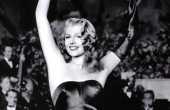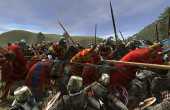RobertCutrera
Contributing writer for The Artifice.
Junior Contributor II
- Lurker
- Sharp-Eyed Citizen
- ?
- Articles
2 - Featured
1 - Comments
9
- Ext. Comments
9 - Processed
3 - Revisions
3
- Topics
2 - Topics Taken
0 - Notes
4
- Topics Proc.
0 - Topics Rev.
0
- Points
285 - Rank
X - Score
137
Latest Articles
Latest Topics
writing Write this topicHow the Humanities Tell Us How to WriteThere are so many majors for prospective college students to choose from in our society, but it is generally the areas of study that fall under the "Humanities" label that focus on the multifarious modes of the "accepted" written word. The "accepted" standard is, obviously, the academic level which professors expect students to meet. But this standard depends upon the major. A History essay differs from an English paper, while an argument posed in a Philosophy essay often takes a different stance on the human psyche as opposed to a Psychology paper. After considering all of the popular majors under the Humanities umbrella, these distinctions become even clearer, yet every student still chases after that elusive academic standard.
|
games Write this topicHow SNES Stays AliveHas anyone noticed how expensive Super Nintendo (SNES) games have become? Arguably the most influential gaming system ever, Super Nintendo games have endured the test of time for many reasons; but are the treasures so enjoyed by millions in the 1990's to be lost on the current generation because of hefty price tags? A detailed analysis of some of the system's hallmark characters–Mario, Link, Donkey Kong, Kirby–would help solidify to modern games why SNES means so much to so many people.
|
Latest Comments
| The End of The Tour: The Loneliness of the Long-Form Writer | |
“The Last Tycoon” contains some of the most beautiful prose Fitzgerald ever put down on paper. Just because the novel was unfinished is not a reason to never pick it up. Star is a complex protagonist whose presence carves out an uncommon perspective on the Hollywood scene in the 30’s. I distinctly remember a few scenes (won’t spoil them in this comment) where Fitzgerald paints him in such a light that parallels the profound sincerity that Gatsby expresses. I hope a few potential readers are convinced to pick up the novel after reading your article. I had only heard of West before reading this, but you’ve definitely interested me in his four novellas. | Sunshine, Celluloid, and Shantytowns: The Hollywood Novel and The Great Depression |
Interesting points. I’ve been intermittently playing the N64 version over the past few months and will probably dedicate more time to it over the winter. I don’t think it would be fair for modern gamers to set Ocarina against games currently released. This game helped solidify an already strong franchise and is remembered fondly for so many different reasons. The mere fact that so many people who grew up knowing of this title still light up whenever it gets mentioned in conversation proves its long standing value. | Does Ocarina of Time Still Hold Up By Today's Standards? |
A very well written article. All of these works provide a different outlook on the horrible effects WWI brought about on societies across the world. Hemingway’s involvement in the war as an ambulance driver for the Italian army puts another intricate spin on his works. Another interesting work on the period is Parade’s End by Ford Maddox Ford. I’d also be interested in hearing your take on some of the films and mini-series depicting the time. A recent series called The Crimson Field aired a single season on the BBC. It follows the lives of doctors and nurses at a British field hospital in France as they care for wounded soldiers. | Literature's WWI Veterans |
I think your conclusion begins a train of thoughts that should begin a new article. You mention a number of interesting points throughout–the moments where you invoke a particular quote or briefly analyze an artist stand out–and I’d like to see a bit more of this. I’m a bit confused about the “joke” part toward the end, but I think you have a lot more to say about such a topic. I’d be interested to read a follow-up article with more examples and references. You analysis of the child-like qualities of the artists also deserves its own article, especially the works of William Blake–his “Songs of Innocence and Experience” contain a multitude of the ideas you mention here. | What Does it Mean to Be a Literary Artist? |
Kerouac has been a favorite of mine ever since high school. I appreciated him for different reasons back then, but now I see him in a more complete, personal view. “Maggie Cassidy” is an overlooked novel that really should be read by anyone with any interest in Keroauc; I’ve never come across a more honest, poignant work about high school. I’ve been reading his letters lately (edited by Ann Charters) and they reveal so much about the daily parts of his life that may be overlooked by many readers. I’ve always hated the stereotypes attached to Kerouac; I tell people to give him more time and effort, recommending works like “Maggie Cassidy” and “Dr. Sax” so they, too, can see the depth of one of America’s greatest writers. The timelessness of his works speak for themselves, though, and, like every other author, a reader must work to find the meaning and value inherent in the words. Nice work with this article. Your thoughtful approach to these three exhibits the open, analytical attitude we should take when considering the fabric of our society and the roots it is built upon. | Does The Beat Generation Still Matter? |
Very well written and researched article. Many people attach stigmas to this genre, but an in-depth study into any of the novels you mentioned would shatter a lot of those stereotypes. I taught “Brave New World” to a Composition course of mine a few years back and they were surprised, pleasantly, yet also uncomfortably, at how close the novel predicted some of our current societal dependences. You should read the novel “We” by Yevgeny Zamyatin, a classic Russian dystopian novel that often gets overlooked. | The Rising Popularity of Dystopian Literature |
I think I’m going to look into this game at some point. I just watched a few clips of gameplay, which definitely helps to illuminate what you’ve said. Interesting views–you mentioned a few other games that you feel have similar elements to this; can you think of any others? The last rpg I got into was Dragon Age, and some of the gameplay looks kind of like what this game gives you, but I’m expecting it is something very different. | The Existential Hero: Dark Souls through Kierkegaard, Camus, and Sartre |


Excellent film. I was surprised by Segel in this one. The book gives a much more detailed account of the conversations only hinted at in the film, but it was very well done. Any fan of the film should go out and get the book.